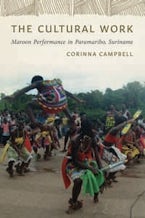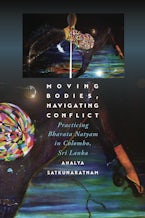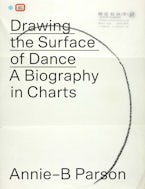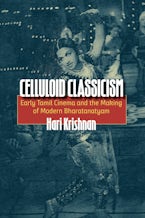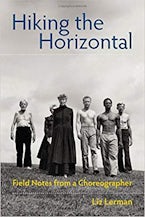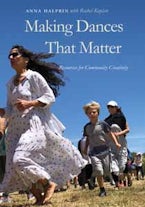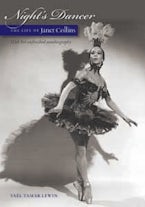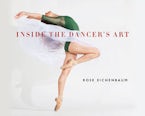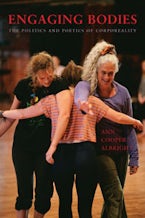- Home
- Wesleyan Dance
- performing arts
- art
- Trisha Brown
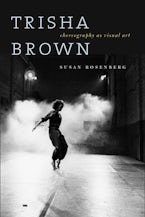
First in-depth study of the ground-breaking work of artist/choreographer Trisha Brown
Trisha Brown re-shaped the landscape of modern dance with her game-changing and boundary-defying choreography and visual art. Art historian Susan Rosenberg draws on Brown's archives, as well as interviews with Brown and her colleagues, to track Brown's deliberate evolutionary trajectory through the first half of her decades-long career. Brown has created over 100 dances, six operas, one ballet, and a significant body of graphic works. This book discusses the formation of Brown's systemic artistic principles, and provides close readings of the works that Brown created for non-traditional and art world settings in relation to the first body of works she created for the proscenium stage. Highlighting the cognitive-kinesthetic complexity that defines the making, performing and watching of these dances, Rosenberg uncovers the importance of composer John Cage's ideas and methods to understand Brown's contributions. One of the most important and influential artists of our time, Brown was the first woman choreographer to receive the coveted MacArthur Foundation Fellowship "Genius Award."
Acknowledgments
Introduction: Trisha Brown, Back to the Future
Seeing the Score: Trillium (1962)
Memory and Archive: A string: Homemade, Motor, Outside (1966)
In a Crack between Dance and Art: "Equipment Dances" (1968–1971)
The Economy of Gesture: The "Accumulations" (1971–1973)
To Diagram, to Dance: Locus (1975)
Anthologizing Process in Line Up (1977)
Subjectivity, Desire, and the Thinking Body: Water Motor (1978)
From the White Cube to the Black Box (1979–1981)
The Name of the Game: Set and Reset (1983) and Lateral Pass (1985)
Abstraction and Theatricality in Newark (Niweweorce) (1987)
Epilogue: Trisha Brown's Archival Imagination
Notes
Index
SUSAN ROSENBERG is consulting historical scholar at the Trisha Brown Dance Company. She directs the Master's Program in museum administration at St. John's University, New York, where she is also an associate professor of art history.
"[T]he book gradually unwinds as if written from muscle memory-the deeply felt knowledge that makes choreography look natural."
~Catherine Damman, Bookforum
"After years of deep research into the life and career of Trisha Brown, Susan Rosenberg has illuminated not only the major works of this most imaginative of postmodern choreographers, but the ideas that shaped them and the artistic climate to which they so greatly contributed. An amazing achievement."
~Deborah Jowitt, author of Time and the Dancing Image
"This is a thrilling, essential book and it confirms Trisha Brown's status as the major artist who transcends disciplinary boundaries and also illuminates a creative process that is unmatched in its rigor and beauty."
~Sam Miller, Director, Institute for Curatorial Practice in Performance, Wesleyan University
"In this overarching, finely detailed book, Susan Rosenberg situates Trisha Brown's evanescent choreography among the painters and sculptors who were her muses and colleagues. An insightful and enlightening translator, Rosenberg connects the mercurial body to the incisive mind, so that we can read Brown's work, and see her thought."
~Nancy Dalva, Merce Cunningham Trust Scholar in Residence
"This important book makes the essential point that Trisha Brown situated her choreography in relation to visual art not simply because of the community of artists around her, or her affinity for drawing—but, as Rosenberg convincingly argues, because Brown's interests in the preservation and transmission of movement drew strength and inspiration from a proximity to the histories and institutions of art."
~Peter Eleey, Museum of Modern Art

